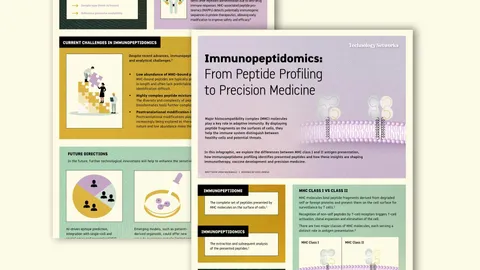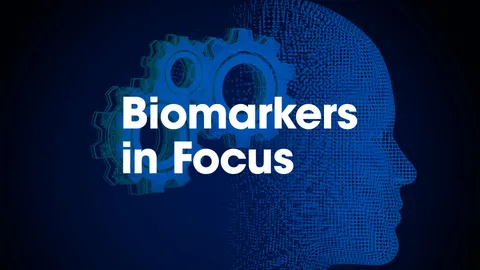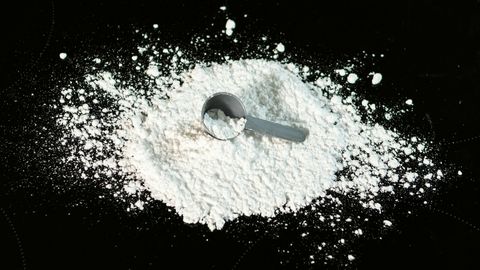Experts Weigh In: What We Really Know About Creatine Today
New research shows creatine is no longer just a sports supplement, with science uncovering new roles and applications.

Few supplements have achieved the ubiquity of creatine. Survey data suggest that it is used by up to 74% of professional athletes and an ever-growing number of recreational users, making it one of the most widely consumed performance supplements worldwide.
Unlike many products that rise and fall on trends, creatine has endured for decades, precisely because its effects are measurable, reproducible and backed by a large body of research.
But the conversation around creatine is changing. Once viewed almost exclusively as a tool for exercise performance, it has become a subject of clinical and public health research.
“Creatine is one of the most extensively studied supplements for performance enhancement, with hundreds of trials confirming its benefits across various forms of exercise,” said Dr. Sergej M. Ostojic, a professor of nutrition at the University of Agder.
To explore the latest findings, Technology Networks spoke with two experts at the forefront of this research. Ostojic has published extensively on creatine’s role in both athletic performance and clinical health, while Dr. Henry Chung, a lecturer in sport and exercise science at the University of Essex, studies how individual differences, including genetics and physiology, shape responses to supplementation.
This article brings together the latest evidence and expert insight to ask a simple but important question: what do we really know about creatine today, and where is the science heading next?
The current scientific consensus on creatine supplementation
Creatine is a naturally occurring compound found in muscles and the brain. Around 95% of it is stored in skeletal muscle, primarily as phosphocreatine, and the remaining 5% is distributed in the brain, kidneys and liver.
Creatine supplementation is a common practice in sports nutrition. It's widely used to enhance muscle performance and recovery. The compound works by increasing phosphocreatine stores in muscles, helping regenerate adenosine triphosphate (ATP) – the primary energy source during intense exercise.
“The scientific principles of how creatine works are very well established,” said Chung.
“To maintain normal creatine levels, an individual needs to consume roughly 1g of creatine per day from dietary sources such as meat or fish, or from creatine-fortified foods. For functional benefits related to muscle and bone health, daily intakes of 3–5g are typically required,” added Ostojic.
Regarding safety, “the International Society of Sports Nutrition concluded that creatine is both safe and well-tolerated in healthy individuals and in several patient populations ranging from infants to the elderly. Even in those people taking up to 30g per day for 5 years showed no harmful side-effects,” said Chung.
While some concerns about side effects have been raised, these have been largely debunked.
“There have been isolated cases in scientific research to show there is an association with cramps, hair loss, dehydration, liver and kidney issues. However, all the listed side effects associated with creatine have proven inconsistent,” said Chung.
How creatine's benefits extend beyond sport performance
Creatine was once solely associated with athletic performance. Over the past decade, research has expanded its role beyond the gym. Recent studies are starting to show that creatine's benefits extend beyond enhancing athletic performance, offering potential therapeutic applications in various health conditions.
“Creatine has transitioned over the past decade from being primarily studied in exercise science to becoming a focus of clinical medicine and public health,” said Ostojic.
Creatine supplementation has been shown to improve vascular function and arterial stiffness, which are important factors in heart health.
In a 12-week randomized trial, people with type 2 diabetes who took 5g/day of creatine while exercise training experienced a 1.1% reduction in HbA1c levels and better post-meal glucose responses; the authors linked the effect to increased GLUT-4 recruitment in muscle. Reviews since then have argued that creatine may help glucose handling and insulin signalling, particularly when paired with exercise; however, the findings are not definitive.
“Research groups worldwide have examined, and in many cases confirmed, its benefits well beyond the athletic arena, including potential roles in healthy aging, neurodegenerative and cardiometabolic disorders, disease prevention and overall health,” Ostojic explained.
Additionally, individuals with a limited intake of animal-based foods – the main traditional dietary source of creatine – may also benefit from creatine supplementation, along with “those with elevated physiological demands during growth, recovery or illness,” said Ostojic.
This broadening of focus suggests creatine is no longer viewed as a single-purpose sports aid, but rather as a versatile compound with overlapping roles in energy metabolism, cardiovascular health and disease prevention.
“Maybe the real benefit of creatine is that it can do multiple things,” concluded Chung.
Creatine and brain health
Another growing area of research on creatine is its potential cognitive and neurological effects. A 2023 meta-analysis of randomized trials reported a small but significant boost to memory in healthy people, with bigger effects observed in older adults.
A 2024 systematic review and meta-analysis agreed: memory effects were modest overall; however, it also found improvements in attention time and processing speed.
“The association with creatine and its impact on performance in exercise and sport is well documented, but its effect on cognitive function has increased in the past decade, changing the current literature landscape,” said Chung. He adds, “based on the literature, it would seem that there are mixed results; however, consistent trends do confirm that creatine works better in specific populations such as the elderly population in terms of cognition.”
A 2024 sleep-deprivation trial showed a single high dose (0.35 g/kg) improved cognitive performance alongside measurable shifts in brain energy phosphates. Still, results in young, well-rested adults have been patchy.
Brain energy phosphates
Molecules, including ATP and phosphocreatine, that store and supply energy in the brain for cellular functions and neural activity.
“Some small trials also suggest a potential benefit in reducing or stopping depression. But evidence is inconsistent, studies are small and theoretical mechanisms are unclear,” said Chung.
“Emerging evidence suggests that achieving brain-specific effects may call for higher dosages, potentially 10g per day or more,” Ostojic added.
That view fits with data showing brain uptake is limited compared with muscle, likely due to transporter and blood–brain barrier constraints.
“Creatine's cognitive effects are likely overstated. It should not be considered a nutrient that will make someone smarter or significantly enhance memory unless they are sleep-deprived, vegetarian/vegan or older,” said Ostojic.
Although, preliminary research in certain sub-sets of individuals is looking promising. “A pilot study from the University of Kansas Medical Center, published a few months ago, suggested that high-dose creatine supplementation over eight weeks may benefit patients with Alzheimer’s disease by improving both cognition and brain creatine levels,” Ostojic reported.
“Our group has also reported positive effects of low-dose creatine in perimenopausal women. Neuroprotection and women’s health, represent underexplored, yet highly promising, areas for future creatine research,” he added.
“This is an interesting direction of research, but it is preliminary and not ready for big clinical claims,” concluded Chung.
Limitations and controversies in creatine research
Even though creatine is, as Chung notes, “the most explored and tested supplement in the world,” inconsistencies in its research extend well beyond its neurological effects.
A 2025 trial from the University of New South Wales found that 5g/day of creatine didn’t lead to greater lean mass gains in men compared to a placebo, when paired with a 12-week resistance exercise program. Both groups gained ~2kg, suggesting much of the early mass gain may stem from water retention, not muscle hypertrophy.
“Despite a very strong body of evidence showing creatine works well for high-intensity exercise, strength, lean mass and muscle gain, etc., there are still some important limitations and gaps in the current research literature,” said Chung.
One key issue he highlighted was inter-individual variability – even individuals using the same dosage and training program can respond differently. “Even when aiming to control for confounding variables, this variability still exists – here is where my specific research sits – as this is most likely related to genetics and interpersonal differences.”
Chung also points out that results for women are inconsistent, noting that hormonal fluctuations during menstrual cycles, pregnancy or menopause make it hard to capture “clean” data. “A lot of the results and outcomes presented might only be applicable / based on male cohorts,” he said.
“More research is needed to clarify potential sex-specific effects and its possible synergies with other nutrients,” added Ostojic.
Additionally, there is no consensus on ideal dosing: “There is no perfect agreement on how much to take and for how long outside a general recommendation,” said Chung.
He also cautions against overblown claims: “Creatine is often sold as a ‘nootropic.’ However, meta-analyses show that in healthy, well-fed young adults, effects are often small or absent. This claim is overhyped as a universal brain booster.”
“Longer-term studies (beyond 12 months) are necessary to better understand sustained adaptations,” said Ostojic.
Practical use and expert perspectives on creatine
Creatine often sparks debate, yet for those who use it daily, the picture is more straightforward. “Personally, I go to the gym and try to keep fit and in shape. I take creatine and normally mix it into my protein shake. I feel like it works for me, so I take it,” said Chung. That personal perspective echoes a broader point: creatine is not a magic bullet, but a simple tool that reliably supports specific demands.
For Ostojic, the value lies in its consistency and practicality: “Creatine is a safe and effective supplement for individuals seeking to enhance functional performance – not just athletes. Personally, I take a low daily dose of creatine to keep my energy levels steady.”
Once dismissed as “unnatural,” creatine now carries decades of evidence behind it.
“I think when you first hear about creatine or any supplement, there is a negative stigma about it. This was especially the case 20 years ago. However, in the past few decades, research on supplements has skyrocketed, putting it in a good light,” said Chung.
“Based on the science and research, in terms of exercise and performance, creatine works as it is intended to. I think if you are after something else, other supplements are made for that purpose, i.e., L-Theanine, caffeine, Omega-3 Fatty Acids, etc.,” he added.
What remains is not the question of whether creatine works – research suggests it does – but how future research can refine its use, identify who benefits most and push beyond the gym into wider health applications.











